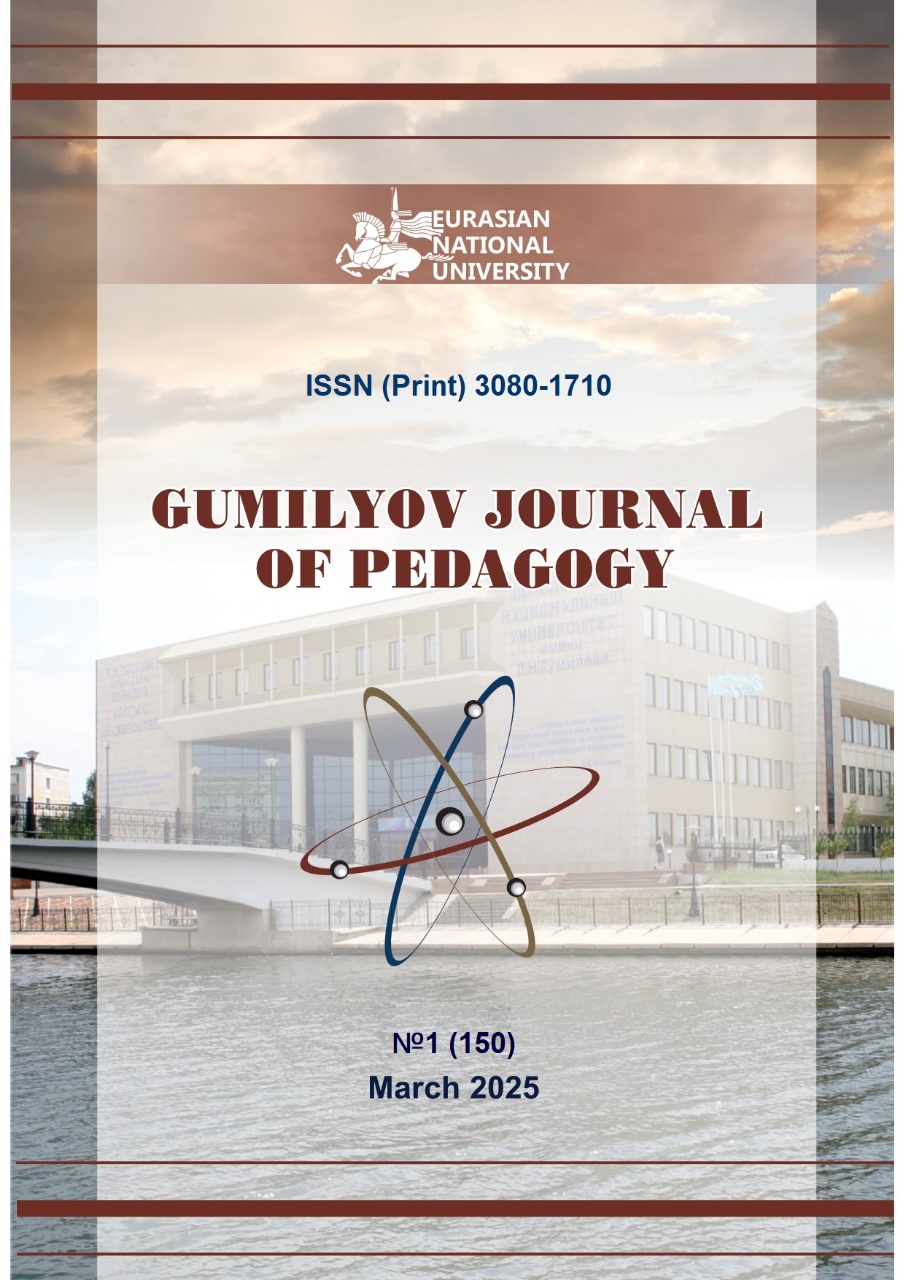Заманауи білім беру ортасында болашақ педагог-психологтардың кәсіби қызметін жобалау
DOI:
https://doi.org/10.32523/3080-1710-2025-150-1-118-137Кілт сөздер:
дайындық, педагог-психологтар, жобалау, білім беру ортасы, сарапшылар, инновациялық білім беру ортасыАңдатпа
Зерттеудің өзектілігі болашақ педагог-психологтардың кәсіби құзыреттіліктерді, оның ішінде жобалық құзыреттіліктерді өзін-өзі дамытуға дайындығын қалыптастыруды ғылыми талдау қажеттілігімен, оны білім беру процесінде кеңінен сынақтан өткізу қажеттілігімен анықталады. Бүгінгі таңда психологиялық дайындық ресурстары мамандарды кәсіби даярлауға жеткілікті түрде тартылмаған. Білім беруді жобалық сүйемелдеудің өзектілігі «Педагогика және психология» мамандығының түлектерін даярлаудағы жаңа трендтерді айқындайды. Мақаланың мақсаты – «кәсіби қызметті жобалауға дайындық» ұғымын нақтылау арқылы маман-психологтың кәсіби қалыптасуы туралы идеяларды кеңейту, ол жеке тұлғаның әртүрлі құрылымдарының интеграциясы мен өзара әрекеттесуінің өзгергіштігі және білім беру ортасының белсенді жағдайлары ретінде түсініледі. Зерттеудің жетекші әдіснамалық негізі ретінде зерттелетін құбылыстар мен процестердің негізгі сипаттамаларын олардың өзара байланысында анықтауға, олардың қалыптасуы мен даму тенденцияларын анықтауға мүмкіндік беретін диалектикалық принциптер қолданылды. Кешенді зерттеу жүргізу кезінде жүйелік, құрылымдық, функционалдық және салыстырмалы талдау әдістері, топтастыру және сараптамалық бағалау әдістері, сауалнама, әлеуметтік-педагогикалық модельдеу және педагогикалық жобалау, оқыту сапасын диагностикалау, зерттеу нәтижелерін өңдеудің статистикалық әдістері қолданылды. Мақалада болашақ педагог-психологтардың Қазақстан Республикасы Жоғары оқу орындарының «Педагогика және психология» мамандығының бітіруші курс студенттеріне сауалнама жүргізуді, сондай-ақ бітіруші психологтардың психологиялық әлеуетін объективті бағалауға, олардың білім беру ортасындағы жобалық жұмысының ерекшеліктерін болжауға мүмкіндік беретін сарапшыларды бағалауды қамтитын кешенді зерттеу контекстінде кәсіби қызметті жобалауға дайындығына теориялық-әдіснамалық талдау берілген.
Зерттеудің маңыздылығы: 1) американдық, еуропалық, ресейлік және қазақстандық зерттеушілердің жоғары оқу орындарының педагог-психологтарының білім беру ортасындағы кәсіби жобалау қызметіне дайындығы мәселесін ашуға қосқан үлесі қорытылды; 2) кәсіби қызметті жобалауға кәсіби дайындықтың жеке құрамдас бөлігінің маңыздылығы анықталды; 3) педагог-психологтарды білім беру ортасында жобалауға даярлаудың тиімділігіне сараптамалық баға берілді.








